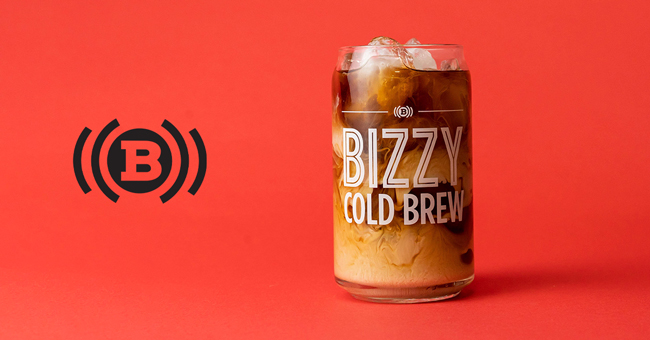Minnesota-based Bizzy Coffee announced today it has closed a $7.1 million funding round led by venture capital firm Sidekick Partners. The financing comes as the company prepares to move into a new 50,000 square foot production facility to help support national retail expansion.
Speaking earlier today, Bizzy co-founder and CEO Alex French said the new round is primarily debt-based, with equity participation from Sidekick as well as Gaingels and Bluestein Ventures. No board seats were awarded in the round.
“Alex and the team have done a great job bringing innovation to the category to find product-market fit,” said Sidekick Partners principal Dylan Schuler in a press release. “Consumer preference, especially among young consumers, is shifting from hot coffee to cold coffee. Bizzy offers delicious cold-brew products in multiple formats, and is building an authentic brand that connects with the next generation of consumers.”
French said the company specifically sought out debt financing and wanted to limit the amount of equity partners coming into the business. Sidekick, he said, has a long history of working with food and beverage entrepreneurs with a “founder-first” mindset.
Founded in 2015, French said Bizzy is currently profitable, balanced by a strong direct-to-consumer business selling ground coffee while using its 48 oz. multi-serve ready-to-drink cold brew products to form the basis of its retail presence, which is primarily in conventional grocery stores. French said sales are up over 400% year-over-year and the brand is now preparing national expansion with chains including Target, Publix and Kroger.
“We have a Midwestern financial mindset of grow the manufacturing business, use cash flow, don’t overspend, don’t over-hire, don’t get caught in the game of spend and raise money,” French said. “And so we were just very kind of strategic about [raising money], because we weren’t in a race for cash. We were fine and we were able to take our time.”
The latest retail expansion is poised to triple Bizzy’s footprint in Q1 to about 5,000 stores. To support the growth, the company is in the process of moving to a new production facility in Minnesota with capacity to produce more than 25 million units per year.
“We basically hit the limit at our [current] space,” he said. “We’re just knocking down walls and outsourcing warehousing – there’s so many trucks moving at our space that we need more dock doors, and we want to bring everything under one roof. So basically, we’re building out a world class plant where we can truly be a leader in the space, because I do believe this category is going to be $5 billion.”
According to NielsenIQ data, the refrigerated coffee category grew 42.3% in 2021 and French hopes Bizzy can establish itself as a national name that can seize on the rising tide. Despite tough competition in the crowded RTD coffee set, French said the brand has built its current product portfolio around simplicity with an emphasis on premium black coffee blends that consumers can customize.
In particular, French noted that aside from a few differentiated brands, cold brew coffee brands have often struggled to succeed in single-serve format in large part due to competition from cafes – notably, Bizzy no longer produces its line of 2 oz. coffee shots. He added that raising this current round was difficult as many investors had no interest in another cold brew company: “Everyone has so many black eyes from the category,” he said. However, building around at-home use has given the brand a defined lane in which to scale.
Looking ahead, Bizzy will grow its team to about 50 employees this year as its footprint and manufacturing expands. French said he’s optimistic that new authorizations could bring the company’s store count to about 10,000 by the end of the year, but the brand is more concerned with driving velocity and sell-through in its existing accounts rather than spreading resources thin by focusing on new distribution.
“We understand this category is exploding and we want to make sure that we’re shipping 100% on-time, in full, so that we can be a long term partner for our retailers,” he said. “Because we do believe this is going to be a massive category and we want to stay forever. We don’t want to just drive store accounts and then get kicked out because we were focused on driving distribution instead of velocity. So we’ve really taken a [strategy to] get doors that we know we can execute on, drive velocity, prove it to our partners, and then increase store count, and increase SKU count with them to show that we’re in it for the long run.”
